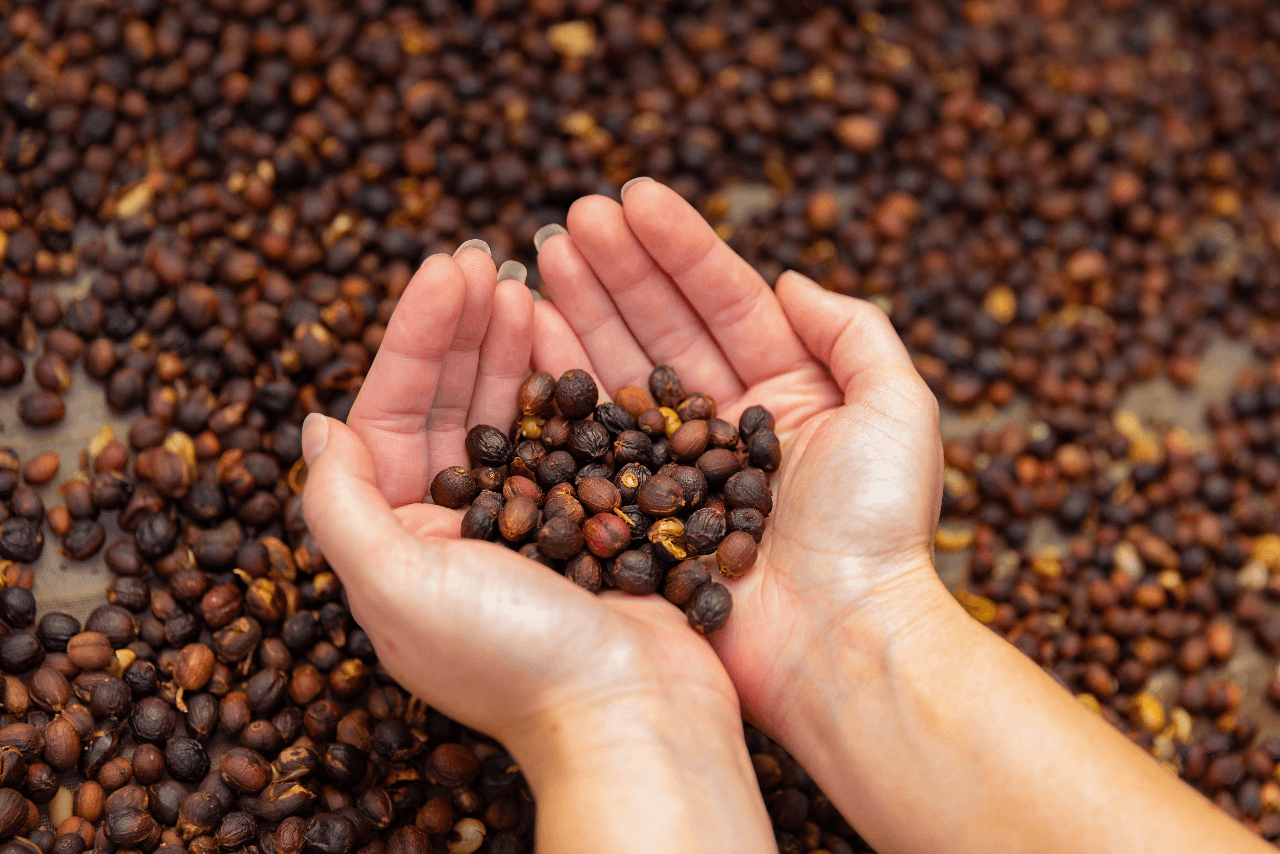Yemeni coffee is more than just a beverage, it’s a tradition. It is considered to be one of the oldest cultivated coffees globally and its origin dates back to the 15th century when Sufi monks in Yemen planted coffee in the mountains to remain awake throughout extended nights of prayers. Although coffee plants grow indigenously in Ethiopia, Yemen was the first country to commercialize and export coffee, making the port of Mokha a global trade hub. That is why the word “Mocha” remains a resonant phrase in coffee culture even today.
The main thing that differentiates Yemeni coffee is the way it is grown. In mountainous regions like Haraz, Ismaili and Bani Matar, farmers have followed terrace farming methods for centuries, to varying degrees by hand without using machines or chemicals. At some of these plantations, elevation is over 2000 meters above the sea level and as a result, they produce beans with a real character. They are pinched, rain-fed, sun-dried on rooftops and cherries naturally storing sugars to make for fully developed flavor configurations.
Read Also: Machboos of Bahrain: A Traditional Dish with a Maritime Past
The heirloom varieties from Yemen including Ismaili and Harazi are genetically unique and rare in today’s world, providing notes of fruit, wine, spice and dark chocolate. Instead of being processed in large factories, they are hand processed usually by the same families that have been doing so for generations.
Coffee has always been part of the culture of Yemen, beyond its economic significance for the country. Preparing and enjoying coffee or “qahwa” is a common social activity in Yemen which means the experience and hospitality of coffee is part of their social experience.
In spite of the hurdles of modernity Yemeni coffee heritage remains alive and well. It embodies the resilience of the Yemeni people the rich history and unique flavors of the beverage. Few coffees in the world offer such a rich story, such ancient roots and handmade artisanship.














